Field Trips
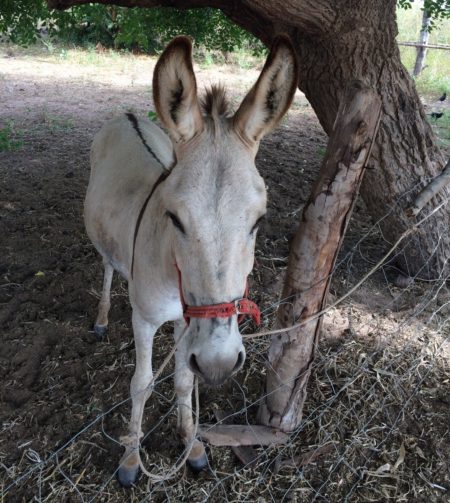
The field trip to The Gambia Horse & Donkey Trust facility was a inspiring experience for me. Most animals here – goats, sheep, cows, chickens, ducks, horses, donkeys, dogs and cats – are not well cared for. An inadequate food supply, and cost of veterinary care is part of the problem, but lack of knowledge regarding how much more valuable a healthy animal can be, is a big part of the issue. Having spent many years caring for animals, it can be distressing to observe how animals are treated here.
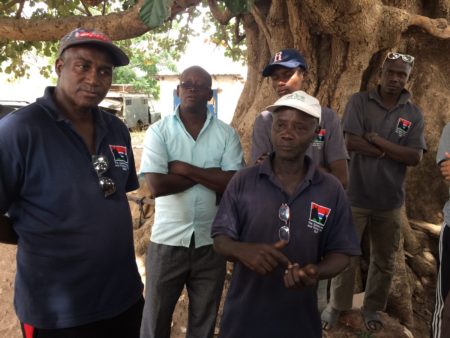
It was very gratifying to visit a place that is making a difference for horses and donkeys. They visit towns and market places, seek out animals that need care, and educate the owner about good husbandry practices. They provide low cost veterinary services, and before returning the healthy animal, they counsel the farmer and visit his facility to insure the horse or donkey will receive adequate care. If a farmer can no longer care for their animal, they can donate it to the facility, and a new owner will be found who can care for it properly. The donkey pictured above arrived without a name, so I got to name it Karo – which means moon in Mandinka.
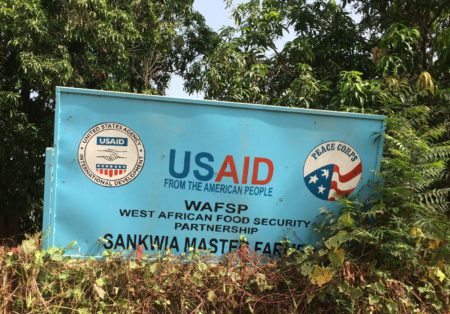
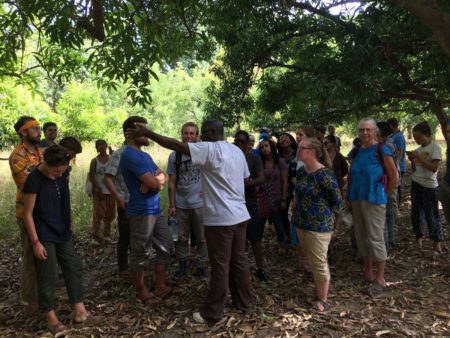
Another field trip location was to a Master Farm. There are several Master Farms in different regions of The Gambia, where good agriculture practices are demonstrated and taught. Selection of appropriate crops and varieties for each location, companion planting, composting techniques, crop rotation, and experimental plants were part of this beautiful farm. Community members can intern at a Master Farm, and then go back to their village with new knowledge to share. A PCV can also arrange a short term assignment at a Master Farm, away from their permanent site, to learn new skills to share with their host community.
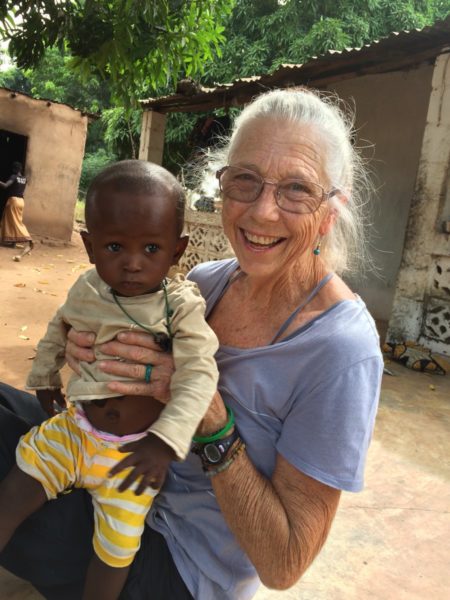
Rural Health Clinics (RCH) are held regularly in many villages that are too distant from health care facilities. My training village was only 2 kilometers from a clinic, so the mobile RHC did not visit us. Photos were not allowed at the RHC, so I posted a photo of a healthy boy in my training village. A trained midwife (usually male), and 2 or 3 support staff would arrive, once a month, with all of the supplies necessary to offer care to pregnant women and children up to 5 years of age. Pregnant women were tested for HIV, and given medication if they tested positive. They were examined to determine their due date, given vitamins and other medications if necessary, and counseled to go to a clinic or hospital to give birth. The babies and children were weighed, received their vaccinations, worming medications, and any other services as necessary. Mothers are encouraged to nurse their babies exclusively for the first 6 months, avoid giving them any water or supplements, to keep them safe from water borne diseases. I was very impressed with the competence and compassion of the health care workers, their ability to keep accurate records, and manage with limited resources. All of these services were provided by the government for FREE.
2 thoughts on “Field Trips”
With your many years of farming and animal care experience, I am sure it makes you feel good to make a positive contribution. This is why you signed up for the Peace Corp. You have a lot to offer.
Susan, I am delighted by your words and pictures. The latest one of you holding an 8 mo. old boy is extra sweet. Thanks for your blog!
Comments are closed.